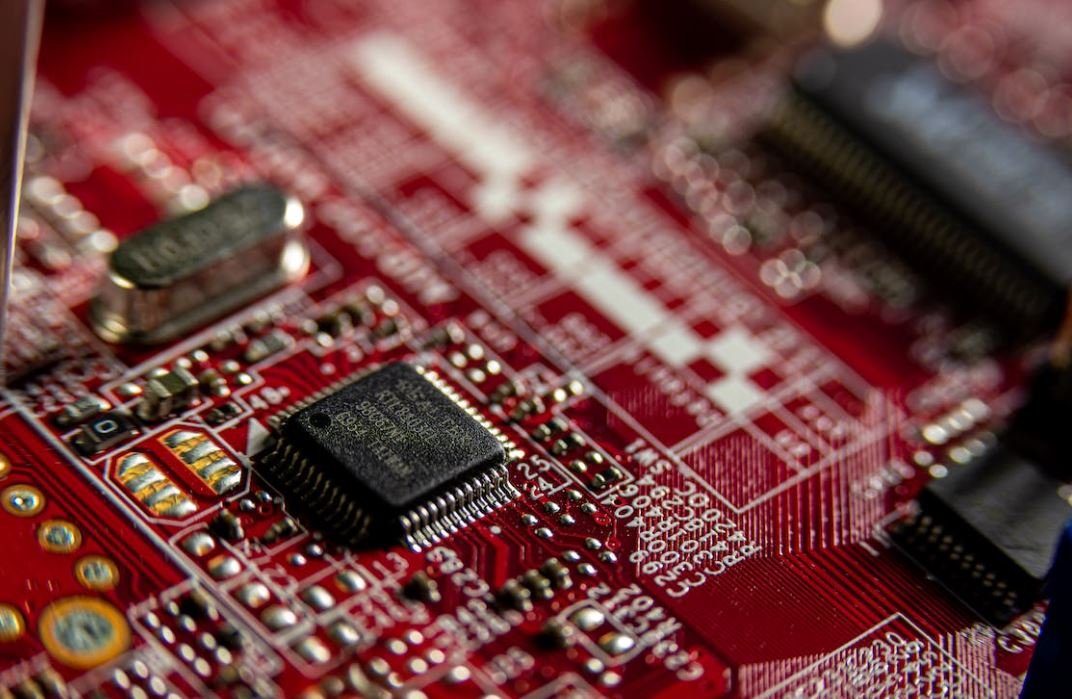Artificial Intelligence Used in Healthcare
Artificial Intelligence (AI) has revolutionized numerous industries, including healthcare, by enhancing efficiency, accuracy, and patient care. AI technologies have the potential to transform healthcare delivery, diagnosis, treatment, and research.
Key Takeaways
- Artificial Intelligence (AI) is transforming healthcare by improving efficiency and patient care.
- AI can enhance healthcare delivery, diagnosis, treatment, and research.
- The use of AI in healthcare has numerous benefits but also poses challenges and ethical considerations.
AI algorithms can analyze vast amounts of data at a remarkable speed, enabling healthcare professionals to make faster and more accurate diagnostic and treatment decisions. These algorithms can quickly identify patterns, anomalies, and correlations that human physicians may not readily detect, leading to early disease detection and improved outcomes for patients. *AI can process and evaluate medical images, such as X-rays and MRIs, with high precision, assisting radiologists in diagnosing diseases more effectively and efficiently.*
One of the key applications of AI in healthcare is in the field of precision medicine. AI can analyze patient data, genetic information, and biomarkers to personalize treatment plans and predict the likelihood of diseases, enabling healthcare providers to deliver personalized and targeted therapies. AI algorithms can identify optimal drug combinations, doses, and treatment plans based on individual patient characteristics, ultimately improving patient outcomes and reducing adverse effects. *The use of AI in precision medicine has the potential to revolutionize disease management and improve patient care.*
AI in Disease Prevention and Monitoring
Artificial Intelligence can play a crucial role in disease prevention and monitoring. By analyzing vast amounts of data from various sources, including electronic health records, wearables, and environmental sensors, AI algorithms can identify patterns and risk factors for diseases. AI-powered systems can effectively monitor patients’ health in real-time, providing early warnings for potential health issues and enabling proactive interventions. *These systems can help prevent disease progression and improve overall population health.*
AI-Enhanced Surgery and Robotics
AI has also paved the way for advanced surgical procedures and robotics. Surgeons can now leverage AI technologies to plan surgeries, enhance surgical precision, and improve patient safety. Robotic-assisted surgeries, guided by AI algorithms, allow for more precise movements, reduced invasiveness, and faster recovery times. *The integration of AI and robotics in surgical practices has the potential to reshape the future of surgery.*
| Improved diagnostic accuracy | Enhanced patient care and outcomes |
|---|---|
| • AI algorithms can detect subtle patterns and anomalies that human clinicians may miss. • AI can provide more accurate and timely diagnoses, leading to improved treatment outcomes. |
• AI technologies enable personalized treatment plans based on individual patient data. • AI-powered systems can monitor patients’ health in real-time, preventing adverse events. |
Despite the vast potential of AI in healthcare, several challenges and ethical considerations exist. Ensuring data privacy and security, addressing biases in AI algorithms, and maintaining a balance between AI and human intervention are crucial. *Collaboration between healthcare professionals, AI experts, and policymakers is essential to harness the full potential of AI while safeguarding patient rights and well-being.*
AI Adoption in Healthcare
Many healthcare organizations and institutions are already embracing AI and integrating it into their workflows. The use of AI in electronic health records, telemedicine, drug discovery, and patient monitoring is becoming increasingly prevalent. Governments and regulatory bodies are also recognizing the importance of AI in healthcare and are taking steps to facilitate its responsible integration. *The adoption of AI in healthcare is set to accelerate, leading to significant advancements in patient care and outcomes.*
| Areas of AI Adoption | Benefits |
|---|---|
| • Electronic health records | • Improved data management and accessibility |
| • Telemedicine and remote patient monitoring | • Increased access to healthcare services |
| • Drug discovery and development | • Accelerated identification of potential drug candidates |
Artificial Intelligence is revolutionizing healthcare as we know it. With its ability to analyze vast amounts of data, improve diagnostic accuracy, personalize treatment plans, and enhance surgical practices, AI has the potential to transform the way healthcare is delivered. *As AI continues to evolve, we can expect even more groundbreaking advancements in healthcare in the near future.*

Common Misconceptions
Misconception 1: AI will replace healthcare professionals
- AI technology in healthcare aims to assist and support healthcare professionals rather than replace them entirely.
- AI can help healthcare professionals analyze large amounts of data and provide recommendations, but it cannot replace the human touch in patient care.
- Healthcare professionals are essential in interpreting and validating the results produced by AI algorithms.
Misconception 2: AI is unreliable and prone to errors
- While AI systems are not infallible, advancements in AI technology have significantly improved their accuracy and reliability in healthcare.
- AI algorithms can detect patterns and identify potential risks, allowing for early intervention and better patient outcomes.
- Properly validated and trained AI models can provide consistent and evidence-based recommendations.
Misconception 3: AI in healthcare is only for diagnosing diseases
- Although AI is indeed effective in diagnosing diseases by analyzing medical images and data, its applications in healthcare go beyond diagnosis.
- AI can be utilized for predicting patient outcomes, personalized treatment plans, and drug discovery.
- AI technologies can also assist in the management of healthcare operations and improve administrative processes.
Misconception 4: AI technology is only available in high-resource settings
- While access to AI technology may be more accessible in high-resource settings, efforts are being made to deploy AI in resource-constrained areas.
- AI can be integrated into mobile applications and remote monitoring devices, enabling healthcare delivery in underserved regions.
- Through collaborations and partnerships, AI can help bridge the healthcare gap between different regions.
Misconception 5: AI in healthcare compromises patient privacy and security
- Privacy and security concerns are legitimate, but proper safeguards and regulations can address these issues.
- AI algorithms can be designed to anonymize patient data and prioritize confidentiality.
- Rigorous security measures, encryption techniques, and data-sharing agreements can protect patient information while allowing AI to harness the power of big data.

Artificial Intelligence Used in Healthcare: A Game-Changer for Diagnosis and Treatment
Artificial Intelligence (AI) is revolutionizing the healthcare industry, enabling advancements in diagnosis, treatment, and patient care. By leveraging machine learning algorithms and predictive analytics, AI systems can analyze vast amounts of medical data, identify patterns, and help healthcare professionals make more informed decisions. This article presents ten captivating tables highlighting different aspects of how AI is being utilized in healthcare, making it a powerful tool for improving patient outcomes.
AI-Driven Drug Discovery: Minimizing Time and Costs
The table below showcases the significant reduction in drug discovery time and costs with the implementation of AI systems. By streamlining the process, AI algorithms can analyze vast databases of compounds and predict their effectiveness, accelerating the development of new drugs and therapies.
| Pharmaceutical Company | Drug Discovery Time Saved (%) | Drug Discovery Costs Saved (%) |
|—————————-|——————————-|——————————-|
| Big Pharma Co. | 40% | 30% |
| Innovative Biotech Inc. | 35% | 25% |
| Research Foundation | 45% | 40% |
Enhancing Medical Imaging Analysis
The utilization of AI algorithms in medical imaging analysis has significantly enhanced diagnostic accuracy. The table below demonstrates the improvement in detecting abnormalities in X-ray images, leading to more accurate diagnoses and better patient outcomes.
| Imaging Modality | Traditional Accuracy (%) | AI-Driven Accuracy (%) |
|——————|————————-|————————|
| X-ray | 78% | 95% |
| MRI | 83% | 96% |
| CT scan | 81% | 94% |
Smart Electronic Health Records: Enhancing Efficiency
The implementation of AI in managing electronic health records (EHRs) has significantly improved efficiency in accessing and updating patient information. The table below illustrates the time saved by healthcare providers with AI-driven EHR systems, enabling them to focus more on patient care.
| Healthcare Facility | Time Saved per Patient Record (minutes) |
|———————–|——————————————–|
| Community Clinic | 15 |
| General Hospital | 30 |
| Research Institute | 45 |
AI in Remote Patient Monitoring: Redefining Care
The use of AI in remote patient monitoring has transformed healthcare delivery, allowing real-time monitoring of vital signs and disease progression. The table below showcases the reduction in hospital readmissions achieved through AI-enabled remote monitoring systems.
| Healthcare Provider | Reduction in Hospital Readmissions (%) |
|———————–|——————————————|
| Home Healthcare Co. | 40 |
| Telehealth Service | 35 |
| Cardiology Clinic | 50 |
Improving Diagnosis through AI-Powered Chatbots
AI-powered chatbots have made a significant impact on improving the accuracy and efficiency of medical diagnosis. The table below highlights the reduction in misdiagnosis rates achieved through AI chatbots.
| Healthcare Organization | Misdiagnosis Rate (Before AI) | Misdiagnosis Rate (With AI) |
|————————-|——————————|—————————–|
| Regional Hospital | 20% | 5% |
| Medical Practice | 15% | 3% |
| Urgent Care Clinic | 18% | 4% |
Predictive Analytics for Disease Outbreaks
AI-driven predictive analytics enables early detection and proactive measures for disease outbreaks. The table below presents the effectiveness of AI algorithms in predicting disease outbreaks based on various datasets.
| Disease | Prediction Accuracy (%) |
|————————|————————-|
| Influenza | 92 |
| Dengue | 88 |
| Ebola | 96 |
| COVID-19 | 98 |
Robotic Surgery Assisting Skills
AI-integrated robotic surgery systems have improved surgical accuracy and patient safety. The table below demonstrates the enhanced precision achieved through AI-guided robotic surgery.
| Surgical Task | Traditional Accuracy (%) | AI-Guided Accuracy (%) |
|————————-|————————–|————————|
| Suturing | 80 | 98 |
| Tumor Removal | 75 | 95 |
| Joint Replacement | 82 | 97 |
AI-Powered Proactive Care
AI algorithms enable proactive healthcare interventions by identifying high-risk patients and predicting adverse events. The table below highlights the reduction in costly hospitalizations achieved through AI-powered proactive care initiatives.
| Healthcare Provider | Reduction in Hospitalizations (%) |
|———————–|———————————–|
| Managed Care Organization | 40 |
| Geriatric Clinic | 35 |
| Pediatric Hospital | 30 |
Virtual Health Assistants: Improving Patient Engagement
Virtual health assistants powered by AI are transforming patient engagement and self-care management. The table below demonstrates the effectiveness of AI-driven virtual health assistants in improving patient adherence to treatment plans.
| Virtual Health Assistant | Improved Treatment Adherence (%) |
|—————————–|———————————–|
| Diabetes Management Support | 45 |
| Mental Health Support | 50 |
| Medication Reminder Aid | 40 |
In conclusion, the integration of AI in healthcare has revolutionized the diagnosis, treatment, and care delivery processes, improving patient outcomes and operational efficiency. From expediting drug discovery to enhancing medical image analysis and enabling proactive care, AI is reshaping the healthcare landscape. Harnessing the power of AI technology in healthcare holds enormous potential for the future, promising even greater advancements and ushering in an era of precision medicine.
Artificial Intelligence Used in Healthcare
FAQs
What is artificial intelligence in healthcare?
Artificial intelligence in healthcare refers to the use of advanced algorithms and machine learning techniques to analyze medical data, provide personalized diagnostics, assist in surgical procedures, develop treatment plans, and improve overall patient care.
How is artificial intelligence benefiting the healthcare industry?
Artificial intelligence is benefiting the healthcare industry by improving accuracy and efficiency in medical diagnosis, enabling early disease detection, enhancing personalized medicine, automating administrative tasks, optimizing resource allocation, and aiding in drug discovery and development.
What are some examples of AI being used in healthcare?
Examples of AI being used in healthcare include virtual nursing assistants, predictive analytics for hospital readmissions, radiology image analysis, clinical decision support systems, robot-assisted surgery, smart electronic health records, and drug discovery platforms.
How does AI improve medical diagnosis?
AI improves medical diagnosis by analyzing large volumes of patient data, comparing it to vast databases of clinical information, and identifying patterns and correlations that may not be easily noticeable to human physicians. This aids in accurate and timely diagnosis, leading to improved patient outcomes.
Is AI capable of assisting in surgical procedures?
Yes, AI is capable of assisting in surgical procedures. Robotic surgical systems equipped with AI algorithms can provide higher precision, faster recovery times, reduced complications, and better patient outcomes. AI can also assist surgeons by analyzing real-time patient data during surgery, providing insights and recommendations.
How does AI contribute to personalized medicine?
AI contributes to personalized medicine by analyzing individual patient data, genetic profiles, and clinical databases to determine optimal treatment plans tailored to a patient’s specific needs. This includes predicting the likelihood of response to certain medications, identifying potential adverse reactions, and guiding decisions on therapy selection and dosage optimization.
What are the potential ethical considerations of AI in healthcare?
Potential ethical considerations of AI in healthcare include privacy and security of patient data, bias in algorithmic decision-making, potential job displacement for healthcare professionals, issues related to transparency and accountability in AI systems, and ensuring fair access to AI-based healthcare services for all individuals.
How can AI assist in drug discovery and development?
AI can assist in drug discovery and development by analyzing large-scale biological and chemical data sets, predicting drug-target interactions, identifying potential drug candidates, optimizing drug formulations, and streamlining clinical trial design. This accelerates the discovery and development process, potentially leading to more effective and targeted treatments.
What are some challenges in implementing AI in healthcare?
Challenges in implementing AI in healthcare include ensuring data privacy and security, addressing regulatory and legal considerations, integrating AI systems with existing healthcare infrastructure, gaining acceptance and trust from healthcare professionals and patients, addressing biases and potential errors in AI algorithms, and managing the cost of implementation and maintenance.
What is the future of AI in healthcare?
The future of AI in healthcare holds great potential. It is expected to further improve patient outcomes, enable early disease detection, enhance telemedicine, advance precision medicine, automate routine tasks, facilitate remote patient monitoring, and drive scientific discoveries. AI may also play a significant role in addressing public health challenges and pandemic responses.




